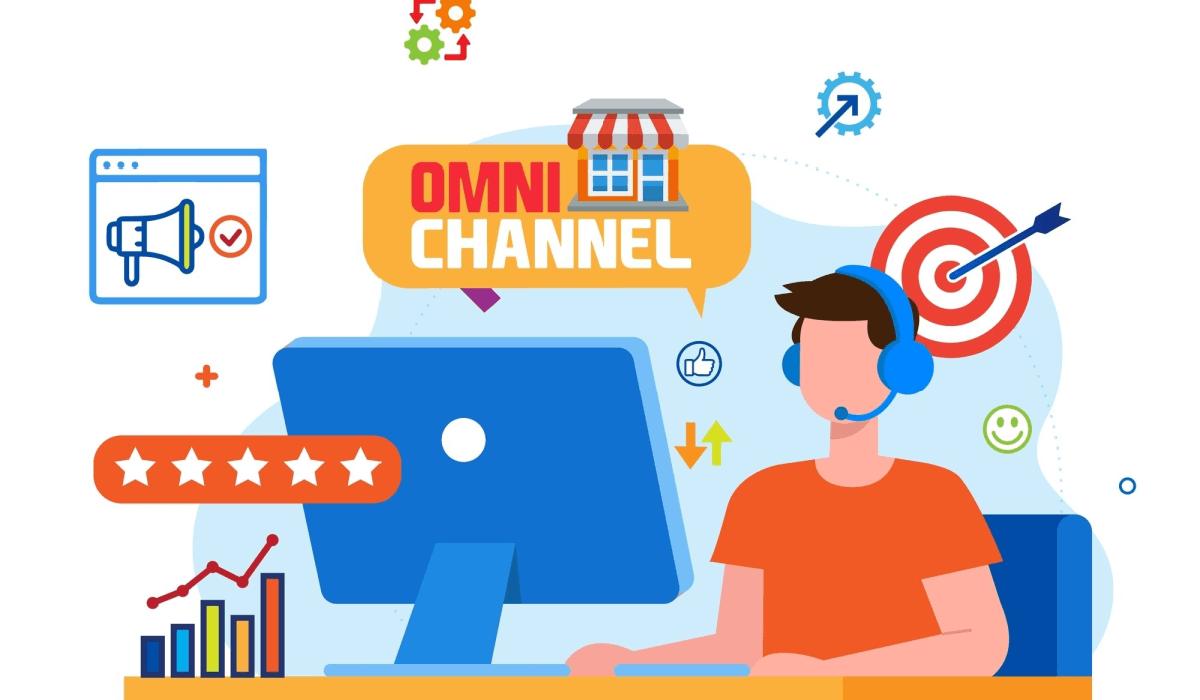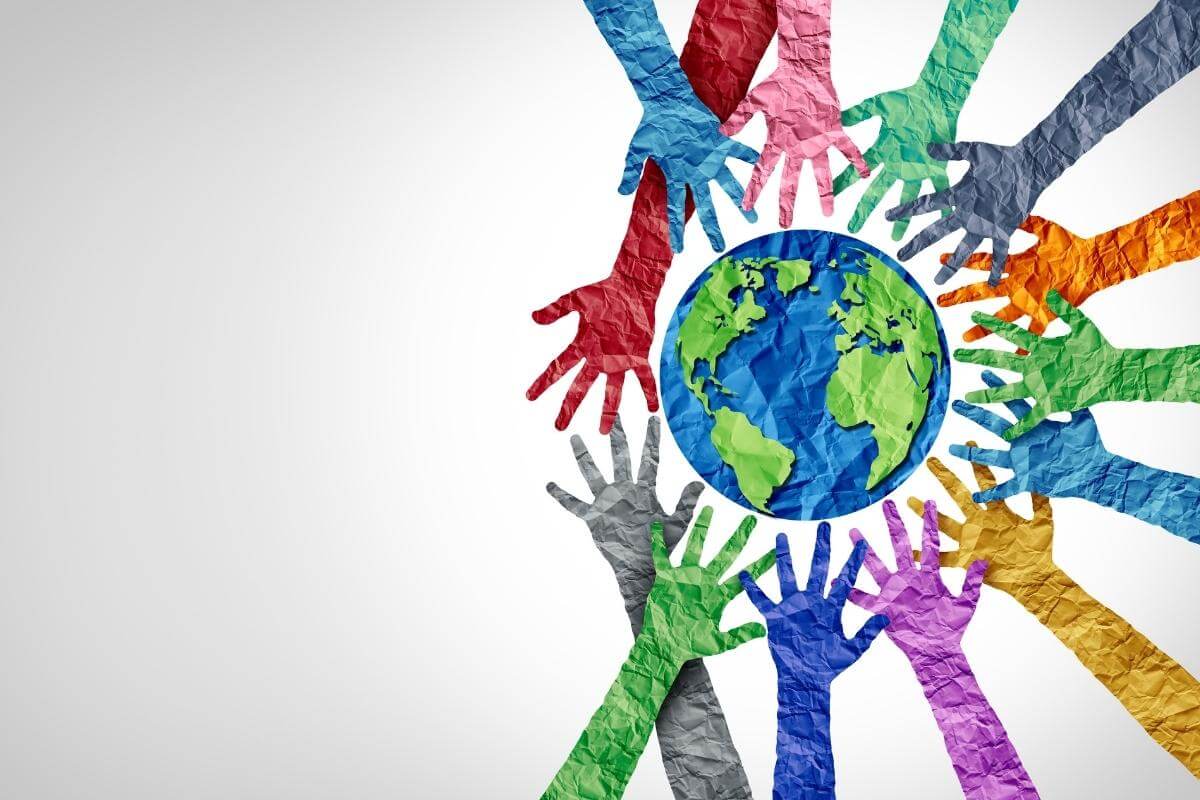IN THIS ARTICLE
Table of Contents
Among the customer service professionals worldwide, bilingual agents and virtual assistants in Mexico are best for providing omnichannel support in Spanish and English.
Why?
Mexico has an extensive supply of workers who speak fluent English and know the Spanish culture and language well. Service vendors in the country can provide a multilingual omnichannel system backed by Spanish-speaking agents to improve support operations.
This article discusses the benefits of multilingual omnichannel support. It also shares tips for outsourcing multilingual customer service.
Read until the end to learn more.
Benefits of Multilingual Omnichannel Support in Spanish and English

Multilingual omnichannel support is a business strategy that helps customers who speak different languages (in this case, Spanish and English) resolve issues regarding your company’s products and services.
Compared to call center services, this approach uses a platform that can handle communication modes such as video, text, and audio. It utilizes bilingual human workers and the latest computer systems, whether these resources are in-house or outsourced to a service provider.
Consider the advantages of multilingual omnichannel support for business success.
Builds a Competitive Advantage for a Better Business Edge
Multilingual omnichannel support agents familiar with buyers’ language, culture, and habits can deliver high-quality customer service and satisfaction. Their bilingual proficiency helps you achieve a competitive edge in your industry. Satisfied customers spread the word about their positive experiences to their families, relatives, and friends.
With word-of-mouth advertising comes these benefits:
- Higher buyer trust and brand recognition. Potential buyers are more likely to trust your company. Improved brand awareness also generates more attention for your business.
- Hikes sales economically. Word-of-mouth marketing is a cost-effective means to advertise your products or services to prospective customers. This strategy is possible with the help of your Spanish-speaking agents.
Reaches Latin American Markets for More Spanish-speaking Buyers
Spanish is the national language of most Latin American (LatAm) countries, including Mexico, Uruguay, Peru, Colombia, Chile, Bolivia, and Argentina. The continent provides ample opportunities for market expansion.
Similarly, using multilingual omnichannel systems lets you acquire Spanish customers as an extra income source. Spain is among the world’s biggest economies, with a gross domestic product of $1.427 trillion in 2021 and consumers having high buying power.
Many Spaniards are e-commerce users, with the online market valued at $27 billion in 2021. However, they are price-sensitive buyers, as 75% of local consumers seek discounts before purchasing products.
Multilingual omnichannel support agents familiar with the Spanish language and culture are best suited to represent your company when entering these markets. They serve as your brand’s representatives, handling daily transactions and customer service.
Some incentives for entering fresh markets include:
- New revenue streams. Foreign expansion helps you increase income. With new markets, you no longer rely on a single revenue source.
- More comprehensive access to talent. You can acquire local workers who are more familiar with the market’s culture for better customer service.
Serves Non-English-speaking Hispanic Users to Reach an Untapped Market
Customer service representatives (CSRs) proficient in Spanish can effectively interact with non-English-speaking Hispanic customers for first-rate service.
Pew Research reports that as of 2022, 42.3 million U.S. Latinos were fluent English speakers. Of the 63.6 million U.S. Hispanics, over 20 million experience difficulty understanding English.
Below are the implications of a language barrier in customer service:
- Poor communication. Spanish-speaking customers have trouble saying what they mean due to weak English skills. Ineffective communication can lead to customer frustration, causing them to switch brands.
- Constant misunderstandings. Miscommunications between CSRs and non-English-speaking Hispanic customers can result in service delivery errors, affecting customer experience.
Localizes Service With In-depth Knowledge of Spanish Values
Spanish is used worldwide. However, it is spoken differently in LatAm, the U.S., and Spain. The language in these regions varies in grammar, pronunciation, colloquialisms, and cultural subtleties.
Spanish-speaking CSRs understand cultural and generational variations among Hispanic Americans. They can localize and personalize support accordingly. Here are the general groups of Hispanics in the U.S.:
- First and second generations. Immigrants and their children prefer Spanish-language media (e.g., social media, radio, and TV).
- Third generation. These individuals were born and raised in the U.S., favoring Spanglish (Spanish and English) in online and in-person interactions. Bilingual agents can effortlessly adjust to this type of conversation.
Improves Social Media Activities for Extended Support
Multilingual omnichannel support lets you track and respond to customer feedback, mentions, and posts on social networks. Your customer service team can answer more questions via social media than by phone.
With an increased social media presence, you can:
- Offer nonstop and fast assistance. Customers who cannot call you often visit your social media page for help.
- Address crises. Your social media team can quickly reply to negative comments or complaints posted by frustrated customers.
Enhances Analytics and Reporting to Promptly Address Customer Issues
A multilingual omnichannel platform can quickly access and accurately assess customer data, such as past interactions, contact numbers, and email addresses. It has predictive analytics to help your team promptly identify customers’ requirements and resolve their concerns.
Examples of analytics include:
- Average hold time (AHT)
- Contact abandonment rate
- Cost per contact
- Customer engagement rate
- Customer satisfaction (CSAT)
- First response time (FRT)
- Number of interactions per channel
- Total time to resolution (TTR)
Provides Personalized Service for Better Customer Relations
A multilingual omnichannel system can offer more personalized service by tailoring customer messages across channels.
Personalizing communication is beneficial for the following reasons:
- Makes customers feel more engaged. Customers who feel at ease purchasing from your company are less likely to discontinue using your products and services and switch brands.
- Gains buyer loyalty. Individualized support results in better customer satisfaction and retention. A loyal customer base translates to repeat transactions and more upselling or cross-selling opportunities.
Enables Smooth Customer Communication
Multilingual omnichannel support lets your customers contact you wherever they are. They can communicate with your team through phone, email, text, video, or direct messages.
Let us look at the various channels and the age groups that use them:
- Phone calls. Baby boomers (1946 to 1964) heavily rely on fixed phone lines.
- Email. Generation X (1965 to 1980) and baby boomers use this means of communication.
- Social media. Millennials (1981 to 1996) and Generation Z (1997 to 2012) are the primary users of social platforms.
- Messaging apps. These are favored platforms of Generation Z and millennials.
- Live chat. Most Generation Z and millennial customers depend on this channel.
Outsource to Drive Multilingual Omnichannel Support

So, what is the BPO provider’s role in Spanish and English multilingual omnichannel support?
When you require extra talent, time, or resources to manage multilingual omnichannel operations, acquiring Spanish-speaking agents from a service vendor is a practical strategy. The BPO company employs bilingual professionals with extensive knowledge of the Hispanic language and culture to improve customer service and satisfaction.
You can delegate multilingual CSRs and an omnichannel platform to nearshore providers in Mexico, where Spanish is the national language. Many BPO firms in this country also have the resources and technology to handle back-office outsourcing and similar activities.
Consider the advantages of outsourcing multilingual omnichannel functions to Mexican BPO companies:
Adequate, Skilled Professionals to Offer Superior Services
Mexico has a skilled, young, and dynamic workforce, with half a million college graduates joining each year. Proficient in digital devices, social media sites, and computing systems, this broad pool of young professionals is well-suited for remote work.
Third-party Mexican personnel can also speak English. About 13 million Mexicans, or nearly 10% of the population, can communicate in the language. These individuals are also familiar with American work environments and practices, offering reliable support to ensure customer satisfaction. They work with minor oversight and carry out duties productively.
You must partner with a reputable nearshore provider in Mexico to make the most of this robust labor market. Choose a BPO company employing workers with the necessary credentials, training, soft skills, and technical expertise. In addition to multilingual omnichannel support, third-party teams must also be adept at providing an array of services, including:
- Information technology (IT) support
- Outsourced e-commerce customer service
- Contact center as a service (CCaaS)
- Healthcare outsourcing
- Email and chat
- Bookkeeping and accounting
- Data entry services
- Administrative support
- Help desk
Cost-effective, Productive Workforce for More Investment Returns
Third-party Mexican specialists can capitalize on the Spanish culture and language to give exceptional customer service comparable to that of American and Canadian professionals. While these professionals’ soft and technical abilities are on par, Mexican salaries are lower.
According to Salary Explorer, the average salary of a regular CSR in Mexico is MXN 12,600, equivalent to over $750 monthly or about MXN 151,000 (over $9,000) annually. Based on experience and credentials, CSRs can cost almost $4,500 monthly (over $54,000 yearly) in the U.S. and about $4,400 (over $52,000) in Canada.
From these amounts, your cost savings will be $45,000 annually when hiring a BPO-employed Mexican CSR instead of one in the U.S. Considering their multilingual omnichannel support capabilities, Mexican CSRs save you money while keeping, if not boosting, output and efficiency.
Regional and Historical Roots for Better Customer Rapport
Third-party Mexican CSRs can also immediately build rapport with Americans, resulting in higher customer satisfaction. Mexico and the U.S. have many commonalities. Many Mexicans and Americans have relatives and family members living on both sides of the border.
Below are a few connections between the two countries:
- History. Mexico and the U.S. were once under colonial rule. Mexico celebrates its independence from Spain every September 16th, while the U.S. commemorates its freedom from the UK every July 4th.
- Government system. Mexico and the U.S. follow the federal system, with the president acting as the country’s head of state. Both nations’ fundamental law is the constitution.
- Food and drink. Mexicans enjoy burgers, fries, hot dogs, and similar fast foods from the U.S. Many Americans like Mexican dishes, including quesadillas, burritos, and enchiladas. Beer is the favorite beverage in both nations.
Outsourced Mexican professionals feel comfortable and assertive communicating with Americans. They can talk about various subjects, helping build closer customer ties. Compared to their counterparts abroad, cultural similarities enable third-party Mexican agents to provide superior customer engagement and service.
Vibrant Outsourcing Industry for Long-term Business Operations
Third-party bilingual specialists are one of the reasons why Mexico has established itself as the leading outsourcing center in Latin America.
Call center services represent over 70% of all BPO operations in Mexico. The remaining 30% comprises technical support outsourcing, virtual assistance, and consulting services.
Statista reported the following insights on the Mexican BPO sector:
- The total outsourcing revenue is expected to reach $4.13 billion by the end of 2024.
- Revenue will rise at a compound annual growth rate (CAGR) of 4.37% from 2024 to 2028. The market will be valued at $4.9 billion in 2028.
- The average cost per worker in the BPO space will be $67.44 in 2024.
Inbound and outbound call center businesses offering various services have increased throughout Mexico. This development shows that the number of CSRs conversing in Spanish is growing, which is favorable for a multilingual omnichannel support setup.
Managed services, customer service, and technical support are all examples of inbound call centers. They also help with human resources (HR) operations, including recruitment and background checks. On the contrary, outbound call centers focus on telemarketing, lead development, and lead qualification.
Versatile Personnel and Operations for Better Financial Management
Third-party multilingual Mexican professionals can work anytime, assuring better customer service and satisfaction. The BPO provider can seamlessly expand or reduce delegated operations per your company’s requirements or situation. This capability maximizes revenue and business value while effectively managing costs.
Without interfering with your ongoing operations, the third-party vendor can ramp up or scale down the number of Mexican contractors or outsourced tasks.
Check out some other positive impacts of scalable multilingual omnichannel support:
- Cost-efficiency. One motivation for hiring third-party bilingual Mexican CSRs is to reduce operating expenses. The BPO provider can provide you with the appropriate team size. It also aids in finding particular procedures needed to optimize performance and production.
- Agility. The BPO partner helps you tackle unexpected challenges without compromising your administrative, help desk, or customer support activities. Your resilience during challenging events increases with better responsiveness.
- Adaptability. Aside from outsourced multilingual omnichannel support, the BPO provider delivers operational adaptability to boost market responsiveness and consumer service. It can quickly modify assigned processes, such as administrative functions, data entry services, and customer support tasks.
Best Practices When Outsourcing Multilingual Omnichannel Support

Now you know why delegating multilingual omnichannel support operations to a nearshore Mexican provider is ideal compared to performing them in-house. Next are some best practices to help maximize the services.
Choose the Right Agents
Acquire third-party professionals with good technical backgrounds. More importantly, prefer those with excellent soft skills for effective communication. An agent should be:
- Attentive. CSRs must remember and understand the details that customers share.
- Analytical. Support specialists must quickly determine the source of a customer’s concerns. They must provide prompt, accurate, and satisfying solutions.
- Collaborative. Agents must be proactive and resolved to contribute to reaching the team’s goals.
- Empathetic. Third-party support agents must comprehend and sympathize with customers’ sentiments.
- Knowledgeable. The customer service staff must adequately answer product, service, and company inquiries.
- Persuasive. Support staff must encourage customers to buy products or leave comments or reviews.
Organize a Cohesive Team
Follow these helpful tips to form a multilingual omnichannel support team to help maximize efficiency.
- Identify the correct number of agents. If your team comprises ten CSRs, ensure at least three are top performers. Include a consultant and an experienced team leader.
- Recruit the right individuals. Build a dynamic and versatile team of specialists and new hires. Experienced team members can improvise and work under pressure. Meanwhile, rookies are enthusiastic, active, and trainable.
- Promote collaboration and transparency. Foster cooperation, teamwork, optimism, and honesty for high morale and smooth workflow.
- Choose the best tools. The third-party team members should be equipped with the relevant software to help them perform their duties.
Assist Support Agents With Self-service Options
Enhance your multilingual omnichannel support capabilities with self-service options. Although automated software is helpful, it will not be able to replace real professionals in the foreseeable future.
Customers will always be humans who desire to communicate with others. Self-service tools simplify routine inquiries, allowing live agents to concentrate on handling complex customer issues and providing excellent service.
Utilize self-service options:
- During peak times, to ease the workload of busy agents
- To provide more product and service information to consumers
- For common customer issues
The following are self-service options:
- Frequently Asked Questions (FAQs) page
- Online support forum
- AI-powered chatbots and messaging
- Product or service tutorials
- Online knowledge base
Obtain the Latest Software
Support your multilingual omnichannel support with advanced and relevant applications to offer top-notch customer service, experiences, and satisfaction.
Examine these software must-haves:
- Automatic call distribution (ACD) handles a high volume of inbound calls, streamlining communication by distributing calls equally among agents.
- Interactive Voice Response (IVR) is an automated phone system that offers callers a menu with various options and performs actions based on the caller’s choice.
- Workforce management software enables supervisors to quickly organize and automate different tasks to help monitor team productivity and performance.
- Predictive dialers accelerate outbound calls and are well-suited for marketing teams. They predict agent availability and match them with appropriate sales prospects.
The Bottom Line
Multilingual omnichannel support is the future of customer service in the U.S. and Spanish-speaking countries. You must establish an effective plan to develop your infrastructure, technology, and human resources. Doing so helps you keep pace with market rivals likely to adopt this strategy.
Examine all your business segments when developing and implementing an omnichannel strategy. Contacting a BPO company to guide you through the process is recommended.
Let’s connect if you want to learn more about the power of multilingual omnichannel support in Spanish and English to drive your customer service operations!





